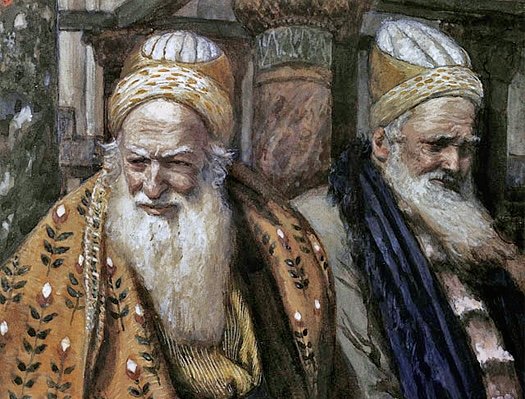
I’ve started doing art based on sign language: tracing movement and stillness, repetition and collision in different shapes and colours.
As I think about the nature of the movement for the word “worship”, I realize that it contains a message for us. It’s small, repetitive, supplicative—clasping one hand in the other and rocking back and forth. It recognizes the largeness of God, and the smallness of man.
I remember that image as I return to the topic of man’s relationship to God in A.W. Tozer’s God’s Pursuit of Man. In examining the mechanics of God’s salvation call to His saints, Tozer says, “The master choice is His, the secondary choice is ours…. Our ‘accepting’ and ‘willing’ are reactions rather than actions. The right of determination must always remain with God…while the ‘no’ choice may be ours, the ‘yes’ choice is always God’s.” [1]
We love our sense of control. With it, we rule the world. Without it, the world becomes a much scarier place—a jungle of predator and prey, of undesired surprise; a slithery, slimy, writhing mass of goop and fear and poop in our pants. The veneer of sleek, slicked-back poise is peeled away, and what’s left isn’t pretty.
But it is real.
So we’re left with a decision. What do we really want? Are we happy to return to our glossy delusions?
Or, do we have the courage to wade into the swamp, look reality in the face, and dare to find the beauty in the Wild?
It is true that “men so keenly enjoy dominion that we like to think we hold in our own hands the power of life and death.” [2] But in savouring this lie, we inflate ourselves and diminish God.
In reality, He does not meekly submit to His own creation. “He is the Fear of Isaac and the Dread of Jacob, and before Him prophet and patriarch and saint have knelt in breathless adoration.” [3]
God is not our servant, waiting on our every whim, breathlessly running to and fro to fulfill our every request in joyous rapture. Our ideas of God too often make Him subservient to us, when reality is the other way around. How simply and profoundly John the Baptist rebukes us in his statement to his disciples: “He (Jesus) must increase, but I must decrease.” [4]
In fact, the Bible calls us to crucify the old self, and lay it on the altar, as part of the living sacrifice we offer to our beloved Saviour. [5] How can this be accomplished? “We need to have taken from our dying hand the shadow sceptre with which we fancy we rule the world.” [6]
It is no accident that “humility and reason returned [to Nebuchadnezzer’s mind] together.” [7] As Tozer points out, pride is a form of insanity. We seem surrounded by the insanity of present times; what horror to realize it likes within as well as without.
In Nebuchadnezzer’s case, it drove him “into the fields to dwell with the beasts. While he saw himself as large and God small he was insane; sanity returned only as he began to see God as all and himself as nothing.” [8]
Human beings must worship. It is built into our very nature. We cannot exist without worship. Our only choice lies in who or what we worship. If we cling to our sense of control and reject our status as living sacrifices; if we grasp after the sceptre of dominion and self-determination, we place an idol in the temple of our hearts. “Men who refuse to worship the true God now worship themselves with tender devotion.” [9]
And with that devotion, our delusions are cemented and the glory of God is hidden from our eyes.
Dare we return to the delusion? The slime and jungle, predator and prey still exist. We just can no longer seem them. The baths we take in our illusion are really immersions in fetid goop. The necklaces we adorn ourselves with? Really snakes, happy to curl themselves around our necks and choke the life from our bodies.
Living in delusion does not protect us from reality. It only disables us from seeing the danger we so glibly embrace.
NOTES
For the previous instalment of this series, click here.
For the next instalment of this series, click here.
[1] A.W. Tozer, God’s Pursuit of Man (Chicago: Moody Publishers, 1950), 72 of 214 in e-book.
[2] Ibid, 73 of 214 in e-book.
[3] Ibid, 74-5 of 214 in e-book.
[4] John 3:30, NASB.
[5] See Romans 6:6, Galatians 2:20, and Romans 12:1.
[6] A.W. Tozer, God’s Pursuit of Man (Chicago: Moody Publishers, 1950), 75 of 214 in e-book.
[7] Ibid, 76-7 of 214 in e-book.
[8] Ibid, 77 of 214 in e-book.
[9] Ibid.










